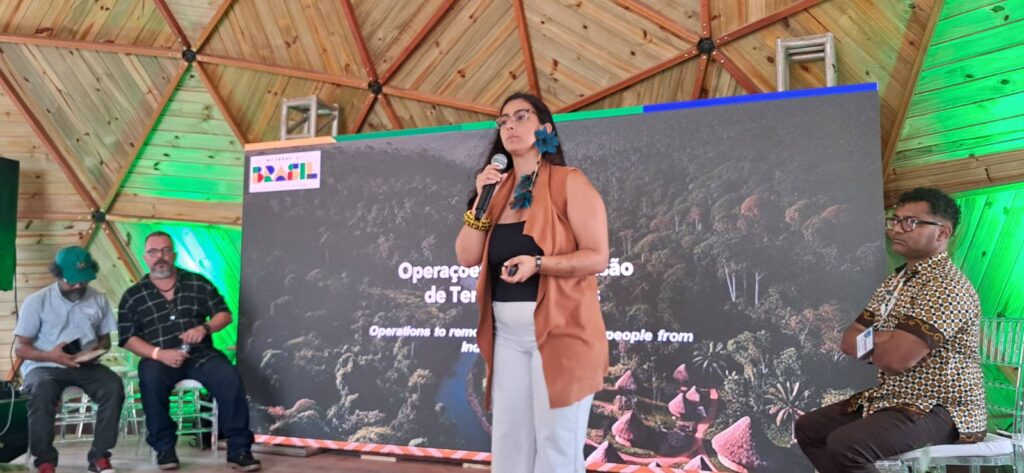Romero Jucá (MDB) has been keeping a low profile. He still lives in Brasilia but has been leading a discreet life since he was not re-elected to the Senate in 2018. Since then, he has rarely responded to the press. Staying out of the spotlight is understandable. In recent years, Jucá’s name has been implicated in corruption cases, although he has always dodged them. But the past of this well-known character in Brazilian politics is umbilically linked to the mining activity in Roraima. So much so that, in 2016, Dário Kopenawa Yanomami, vice chairman of HAY (the Hutukara Yanomami Association) and the son of leader Davi Kopenawa, called him “the worst enemy of the indigenous peoples of Brazil”.
Between May 1986 and September 1988, during the José Sarney administration, Romero Jucá was appointed chairman of the National Indigenous Peoples Foundation (Funai). The time when the agency was headed by Jucá was disastrous for the Yanomami people. Still, he received an award from the government. From 1988 to 1990, Jucá was appointed by Sarney, his political godfather and a MDB party chieftain, to be the first governor of the territory of Roraima, which would later become the State of Roraima.
In the context of project Calha Norte – created in 1985 under the pretext of populating the borders with Colombia, Peru and Venezuela, and bringing infrastructure to the region’s villages -, the Sarney administration saw mining on Yanomami land as the perfect solution to an imminent social issue. A year earlier, the Serra Pelada mine, in Pará, had showed signs of manual mining exhaustion, which meant that around 80,000 miners would be left with nothing to do. The heavy machinery would be called into action. With the blessings of the head of the Military Household Rubens Bayma Denys and of Jucá, at Funai, a new mining front could absorb this contingent of individuals thirsting for gold, diamonds and other mineral wealth.
Read Zé Altino reveals military mining interests
In 1986, Jucá allowed illegal mining in Roraima to advance by expanding an old airstrip in the region of Paapiu and Couto de Magalhães, on the border between Brazil and Venezuela. The work of the Brazilian Air Force (FAB) facilitated the entry of invaders, as no military base was built at the site. The following year, Jucá expelled NGOs and religious missions and ordered the removal of health teams from TI Yanomami, in the midst of a pandemic of malaria and the flu. And in August 1988, at the end of his term as chairman of Funai, he even proposed a 75% reduction in the size of TI Yanomami.
The study “(De)territorialization and Social Conflicts in the Struggle for Space in Roraima”, by France Rodrigues, a professor at the Federal University of Roraima (UFRR), states that “amidst allegations of conflicts between indigenous peoples and miners, Romero Jucá presented José Sarney’s “Project Meridiano 62″, which proposed the creation of mining reserves in areas with a higher concentration of mining operations, allowing the activity for two years. Big mining companies, traders, businessmen and individual miners hailed Governor Romero Jucá as the ‘savior of the miners’”.
The gold capital
“The actual number of clandestine airstrips is incalculable, but, unofficially, there are 80. But if FAB and the DAC [Department of Civil Aviation] wanted to [prevent these activities], they would not be built, nor would the planes leave without flight plans”, said the then federal congressman Plínio de Arruda Sampaio (PT-SP), on June 28, 1989 in an article by Agência Estado. This statement remains true to this day, 32 years later. In that same article, there is information that the Boa Vista airport, which did not have a radar system, was the second busiest airport in Brazil at the time, with 300 daily landings and departures. An estimated “85% of a gold production that amounted to three kilos a day” left Roraima.
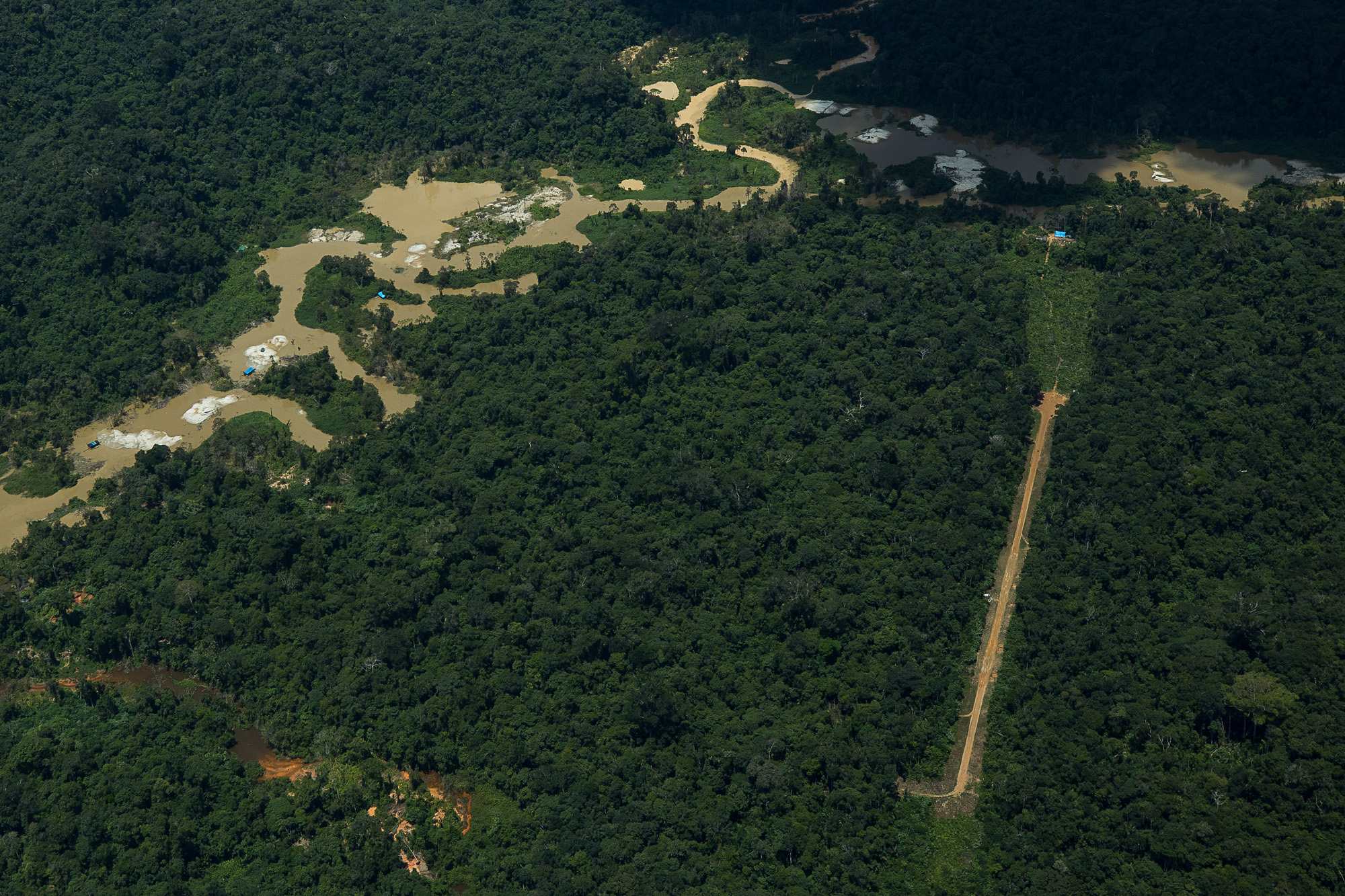
Read how airplanes are key pieces of illegal mining operations
In 1991, Italian author Luigi Eusebi, in his book “A barriga morreu” (Edições Loyola), which deals with the genocide of the Yanomami people, stated that Jucá was known as “the man with 35 mines”. Thus, it was no surprise that in March 1996, after being elected senator from Roraima as a representative of the PFL party, Jucá submitted Bill of Law 1,610, which authorized mining on indigenous lands. In December 2014, he asked for the withdrawal of the bill, which was still under discussion in the Congress, claiming, on the floor of the Senate, that the mining issue was “a price I no longer want to bear”.
This was his reaction after being identified by the National Truth Commission, also in December 2014, as the person responsible for allowing the invasion of TI Yanomami by 40,000 miners, when he was in charge of Funai. The final report estimated that at least 8,350 Yanomami died, either as a result of the direct action of government agents or due to omission.
Family Interests
Romero Jucá is from Pernambuco, where he received a degree in economics and began his political career. He occupied a municipal office in Recife in 1984, four years before being assigned to be governor of the then territory of Roraima. The relocation was good for the family net worth. The Jucá family became owner of the largest communication conglomerate in the state of Roraima.
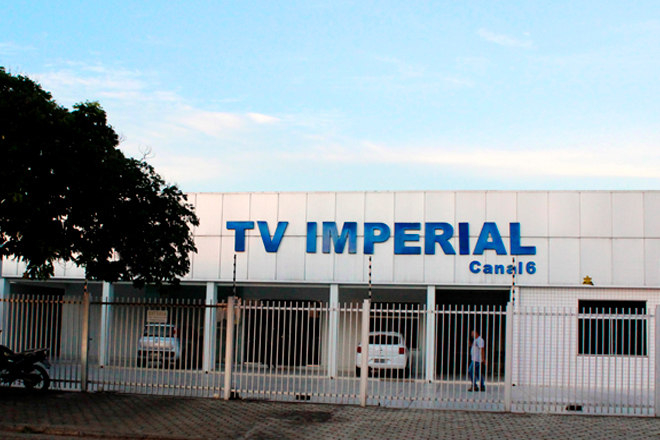
Today, the group’s companies are registered in the name of the ex-senator’s wife, Rosilene de Brito Pereira Jucá, and their children. TV Imperial, an affiliate of Rede Record, is partly owned by Jucá’s stepson, André Felipe de Brito Pereira Costa. Buritis Comunicações, an affiliate of TV Bandeirantes, is registered in the name of Rosilene and her son Rodrigo Menezes de Holanda Jucá, who in turn has other companies registered in his name. One of them is the advertising agency Uyrapuru Comunicações, in which Rodrigo Jucá appears as a partner at Societat Participações, the only company in the group located in São Paulo. Societat, which provides information services, is also co-owned by daughter Marina de Holanda Menezes Jucá Marques. Marina and Jucá’s wife Rosilene also co-own Rádio Equatorial and Editora Online, responsible for the Roraima em Tempo website.
Marina, in particular, knows the world of mining in Roraima well. She owns Boa Vista Mineração. On the website of the National Mining Agency, the reporters located a request for authorization filed by the company owned by Jucá’s daughter to mine gold in Amajari, at Serra do Tepequém, near TI Yanomami. But in 2015, Boa Vista Mineração filed a request to discontinue activities at that site.
In 2017, in an interview to website Poder360, the politician explained that his refusal to legalize mining on indigenous lands had nothing to do with the fact that his daughter Marina, Maria Teresa Surita’s stepdaughter, owned a mining company. Teresa Surita, who was five times elected mayor of the city of Boa Vista, with approval rates above 75%, was once married to Romero Jucá, a former senator and former governor of Roraima. In the capital city of Roraima, her first election is attributed to Jucá, in 1992, although he himself was defeated at the polls two years earlier while running for governor of the newly created state of Roraima.
Romero Jucá was contacted by the reporters, both directly and through his press office, on three occasions, but declined to be interviewed.
Local politics
Federal Police Chief Adolpho Albuquerque, from the Federal Police’s Organized Crime Repression Precinct, says that one of the main challenges for combating illegal mining in Roraima is what he classified as “massive backing from politicians and authorities, who support people who work in this activity”.
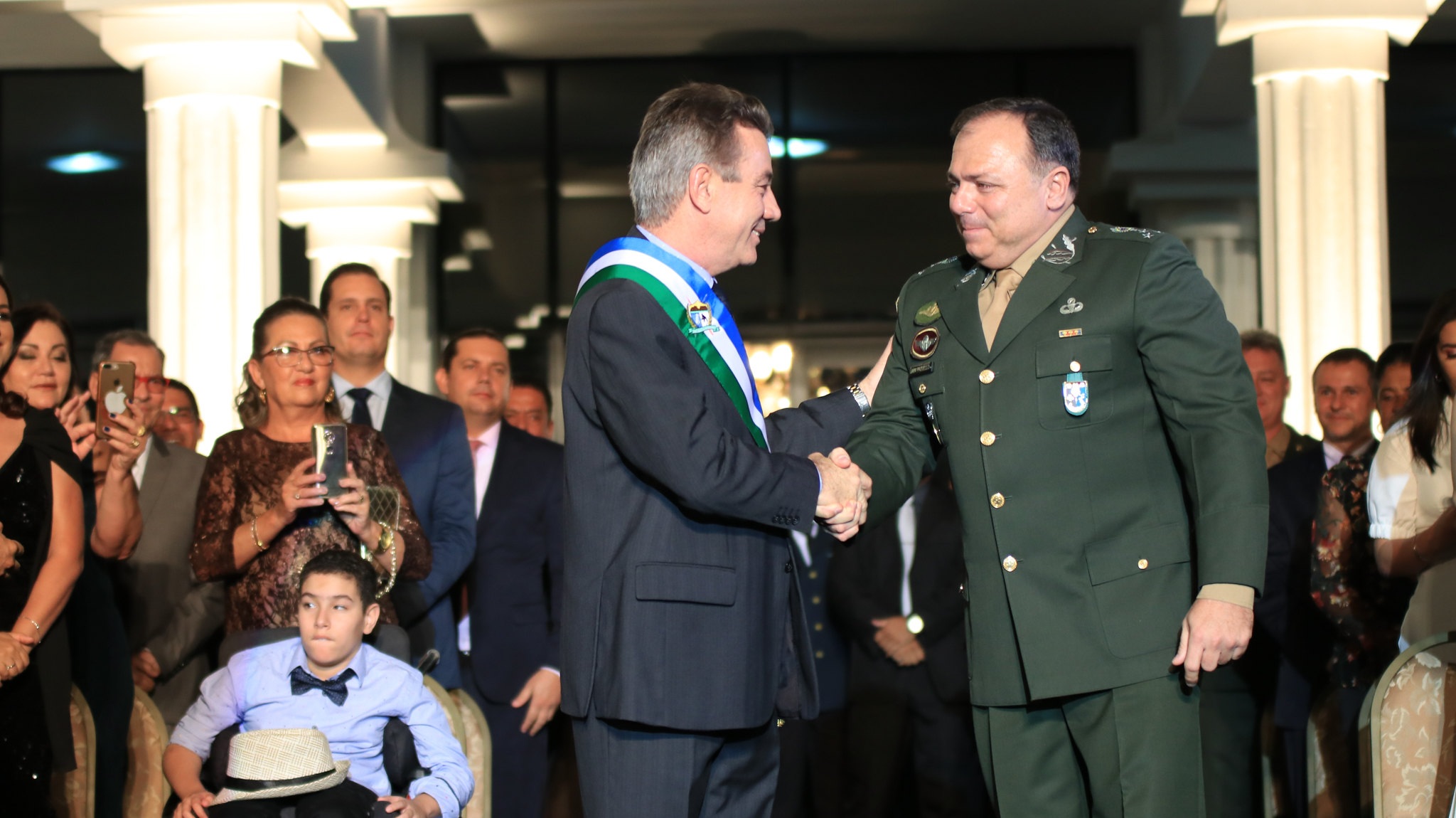
Here in Roraima, there is a particularity that is the issue of local culture. The state’s foundations are deeply rooted on mining activities, people came here to seek a new life through gold mining especially. So culturally there is a social acceptance of this activity. There’s this motto that they use: ‘Miners are not criminals’, Adolpho Albuquerque, Federal Police Chief
More than that, mining yields votes. Supported by the bolsonarist movement, Antonio Oliverio Garcia, known as Denarium, was elected governor of Roraima in 2018 with 136,612 votes. Born in Anápolis, in Goiás, and living in Roraima since the 1990s, he was elected as a representative of the PSL party and shared the same inflamed anti-immigration and pro-mining discourse as Jair Bolsonaro,.
Denarium, his nickname, comes from “denarius”, the standard silver coin during the Roman Empire. He took over the government even before his inauguration, when he was appointed federal intervenor via a decree by then-president Michel Temer (MDB). Roraima faced a financial and political collapse as state officials staged strikes and protests against months of wage arrears. It was the end of the administration of Suely Campos, wife of Neudo Campos, former governor identified as the leader of the ‘locust scandal’ and prevented from running for office in 2016 due to the “Clean Record Law”.
Up to that point, Denarium was seen as an agribusiness (soy and cattle) entrepreneur and a former director of Banco Bamerindus – whose job had brought him to Roraima – but unknown to local politicians, even though his opponents accused him of loan sharking, which he always denied. Once in power, the governor proved to be a faithful ally to illegal miners, following in the footsteps of President Bolsonaro.
At the end of last year, when the state recorded 700 deaths by Covid-19, Denarium was concerned about submitting to the Legislative Assembly of Roraima Bill of Law 201/2020, known as the “Mining Bill” (stayed since February by the Federal Supreme Court), which introduced flexibility in the process of environmental licensing of mining activities. The bill would open the state’s lands to mining, also allowing the use of machinery and mercury, which is a substance that is highly toxic to humans, plants and animals.
Incidentally, mercury was included in the Bill of Law thanks to an amendment by state congressman Eder Lourinho (PTC). Another political newcomer, he was elected in 2018 with 2,581 votes after campaigning alongside Denarium himself and Airton Cascavel, recently identified as the a direct assistant to former minister of health Eduardo Pazuello. From the military to Romero Jucá, from Denarium to Bolsonaro, in Roraima all that glitters is, indeed, gold, but much of it is tarnished by Yanomami blood.
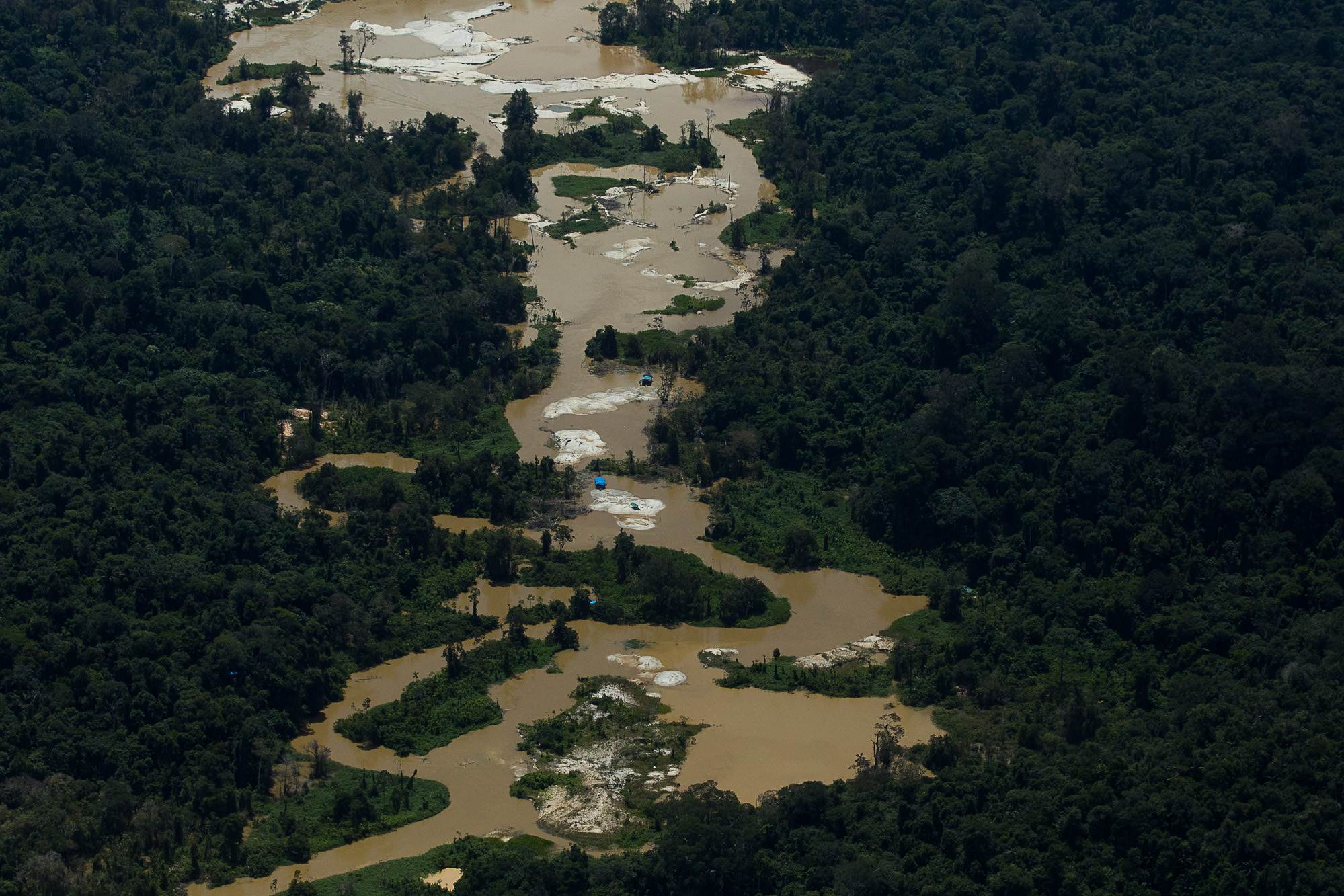
*In collaboration with Clara Britto and Kátia Brasil
Yanomami Blood Gold Teams
Amazônia Real: Kátia Brasil (executive editor); Eduardo Nunomura (special editor); Alberto Cesar Araujo (photography editor), Elaíze Farias (content editor); Maria Fernanda Ribeiro, Clara Britto and Alicia Lobato (reporters); Bruno Kelly (flight photographer) and Paulo Dessana (photographer); Lívia Lemos (social media); Maria Cecília Costa (executive assistant); Giovanny Vera (maps); César Nogueira (editing); Nelson Mota (developer); and Ana Cecilia Maranhão Godoy (translator).
Repórter Brasil: Ana Magalhães (journalism coordinator); Mariana Della Barba (editor); Mayra Sartorato (social media editor); Piero Locatelli and Guilherme Henrique (reporters); Joyce Cardoso (intern).
